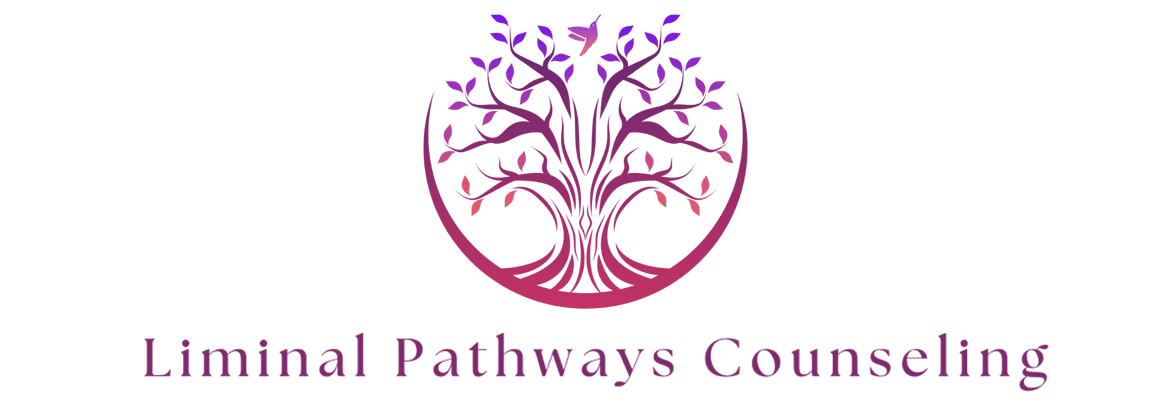FAQ's
Therapy can be a great place to explore your thoughts, feelings, and concerns in a supportive space. Through this process, you can gain valuable insights into yourself, develop coping skills to navigate life’s challenges, and work towards positive changes. Therapy can help you better understand your emotions, improve communication, build self-esteem, and cultivate healthier relationships. By investing in therapy, you’re investing in your own well-being and personal growth.
Therapy sessions typically begin with an initial consultation where we’ll discuss your concerns, goals, and any questions you may have. From there, we’ll work together to develop a personalized treatment plan tailored to your needs. Sessions usually occur weekly or bi-weekly and may include a combination of talk therapy, exploration of thoughts and emotions, skill-building exercises, and homework assignments. The frequency and duration of sessions depend on your individual circumstances and progress.
Your active participation is key to the success of therapy. In sessions, you’ll have the opportunity to express your thoughts, feelings, and experiences in a safe and confidential environment. Together, we’ll explore challenges, identify patterns, and develop coping strategies to help you navigate difficult situations and achieve your therapeutic goals. Depending on your needs and preferences, sessions may involve guided discussions, reflective exercises, role-playing,
mindfulness techniques, and more. Ultimately, your therapist is here to support and guide you through your journey towards healing and personal growth.
Expressive Arts: Expressive arts therapy involves using various creative modalities such as visual arts, music, movement, writing, and drama to explore emotions, thoughts, and experiences in a therapeutic setting. It provides a non-verbal and often non-linear way to express and process feelings, allowing individuals to tap into their inner creativity and intuition. In this approach, the focus is not on the final product but on the process of creation and the insights it can bring.
Dialectical Behavior Therapy (DBT) is a type of therapy that is particularly helpful for individuals struggling with intense emotions, impulsive behaviors, and difficulty in managing relationships. In DBT, you’ll learn practical skills to cope with distress, regulate your emotions, improve communication, and build healthier relationships. It’s about learning to accept yourself as you are while also striving for positive changes in your life. Overall, DBT provides a structured and supportive framework to help you navigate life’s challenges more effectively.
Cognitive Behavioral Therapy (CBT): is a widely used and effective type of therapy that focuses on the connection between our thoughts, feelings, and behaviors. It helps individuals understand how their thoughts and beliefs influence their emotions and actions. In CBT, you’ll work with a therapist to identify and challenge negative or unhelpful thought patterns and develop more balanced and constructive ways of thinking. You will also learn practical skills and strategies to change behaviors and cope with challenging situations. CBT is typically short-term and goal-oriented, making it a practical approach for addressing a wide range of issues such as anxiety, depression, stress, and relationship problems.
Mindfulness Self Compassion: Mindfulness Self-Compassion is an approach that combines mindfulness practices with the concept of self-compassion. It involves cultivating awareness of the present moment without judgment while also fostering a compassionate attitude towards oneself. This means being kind and understanding towards one’s own suffering, mistakes, and imperfections. Mindfulness Self-Compassion teaches individuals to treat themselves with the same kindness and care they would offer to a friend in times of struggle. It involves practices such as mindfulness meditation, self-compassion exercises, and cultivating a non-judgmental attitude towards oneself. This approach can help individuals manage stress, build resilience, and cultivate a greater sense of well-being and inner peace.
It’s vital for you to feel confident in your choice of counselor. Typically, consultations last around 30 minutes and are conducted via telehealth for your convenience. During this time, we can address any questions or concerns you may have, or simply engage in a casual conversation to gauge compatibility. The primary focus of this consultation is to assess whether you feel we would work well together and if I am the right fit to support you on your journey.
As a mental health professional, I offer a unique perspective and objective guidance to help you navigate your challenges. Unlike talking to friends or family, I can provide you with new skills, different perspectives, and a non-judgmental space to express yourself. Counseling sessions are completely confidential, ensuring your privacy and allowing you to speak freely without fear of judgment or repercussions.
Additionally, confiding in friends or family may strain your relationships, particularly if your situation evokes strong negative emotions. There’s a risk of inadvertently avoiding these individuals once you start feeling better, to prevent reminders of difficult times. Therapy offers a safe and supportive environment where you can openly explore your feelings and experiences without affecting your personal relationships.
While medication can be helpful, it’s not always sufficient on its own. In many cases, medication is most effective when combined with counseling or therapy. Our collaborative work is tailored to delve into and address the underlying issues you’re facing while also leveraging your strengths to achieve your personal goals. I also value collaboration with physicians to ensure that you receive the most holistic care possible.
It’s challenging to provide a definitive answer on a general FAQs page because therapy duration varies for each individual. Factors such as your specific goals, level of commitment, and the underlying reasons for seeking counseling all influence the length of treatment. Together, we’ll regularly evaluate your progress and adjust our approach as needed to ensure you receive the support you need for as long as necessary.
I’m thrilled that you’re committed to maximizing your therapy experience. Your active participation and dedication will be the greatest factors influencing your growth and progress. By engaging fully in sessions, practicing strategies outside of our meetings, and openly communicating your thoughts and feelings, you’ll enhance the effectiveness of our work together.
Out-of-Network: When you receive care from a provider who does not have a contract with your insurance company, it is considered Out-of-Network (OON) care. Although these services may involve higher out-of-pocket costs, they come with several benefits, including access to a broader range of specialists, personalized treatment plans, and enhanced privacy.
To help manage and reduce the costs associated with OON services, clients can use services like Mentaya. Mentaya handles the reimbursement process with your insurance company, ensuring you get the maximum possible reimbursement for OON therapy services. They streamline the paperwork and communication with insurers, making it easier for you to focus on your therapy without worrying about the administrative burden.


